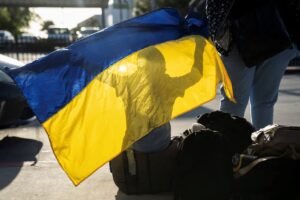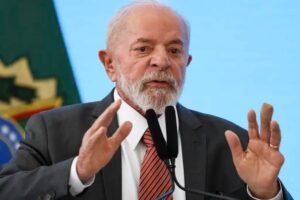Help Imprisoned Syrian Sculptor at Risk Under Brutal Regime
“Give my humanity back to me by challenging villainy, violence, tanks, and half-men.”– Tareq Abdulhay
Suweida, Syria: Released by Close Friends of Tareq Abdulhay Who Have Walked Step-by-Step With Him In His Political Activism
Tareq Abdulhay is a sculptor, potter, light photographer, and editor of Sculpting, an arts magazine published by the Sculptors’ Union, Suweida Province. This former chief archeological restorations expert forSyria’s Directorate of Antiquities and Museums, born in 1967, earned a degree in photography from Damascus University’s Fine Arts College (1991). Tareq belongs to the International Federation for Photographic Art and the Light Photography Arts Association of Syria, exhibiting at numerous shows in Syria and abroad. He has experimented in making pottery with innovative materials, particularly basalt. (Most of his works have sold; the photographs below are of experiments and minor works left in his studio after his recent detention.

With the passion of an artist to whom freedom means everything, and a strong concern for the well-being of his country, the forty-three year old Tareq Abdulhay has been involved from the beginning in the people’s protests demanding freedom from the dictatorial regime in Syria.
Tareq outspokenly supported the legitimacy of the Syrian people’s demand for freedom and dignity on BBC-Arabic’s Have Your Say, as well as on his Facebook page. He wrote exposing acts of regime repression, its criminal tactics and plots, and its desperate attempts to spread conflict among its citizens by playing the sectarian and minority card. Throughout this period, Tareq has suffered assaults and attacks by security agents.
Tareq demonstrated for freedom onSyria’s Independence Day (April 17), inShu’la Square, in his hometown of Suweida, and was imprisoned for a day, his camera and cell phone confiscated. Tareq was subsequently subjected to numerous threats over the phone and in person by persons associated with the security apparatus, warning him to cease his struggles against the regime. These escalated, after his repeated refusals to stop supporting and participating in the protests, to death threats.
Because Tareq comes from a Druze background, the security apparatus tried to persuade him to participate in “dialogue” as part of its policy directed toward swaying minorities. He refused each time. What’s more, he wrote and communicated to the media exposing this policy of exploiting minorities, using his real name, causing him again to be detained briefly.
Tareq is no stranger to dissent. In 1995, Abdulhay, with a group of photographer friends, documented archeological sites in Suweida, in an attempt to save them from ruin and burial during the building of an axial road through the center of the city. They organized an exhibit about these sites sponsored by the Union of Engineeers, despite government opposition from then Culture Minister Najah Attar, who ordered a boycott of the exhibit. Security officials harassed Abdulhay.
Unknown parties kidnapped Tareq. On Tuesday, August 23, 2011, as he was returning to his home at approximately five p.m. An hour later, security agents raided his home, ransacking its contents, and confiscating his computer and a collection of his papers. Security did not acknowledge that Abdulhay was in their custody for another week, and this only after frantic efforts by his family. Tareq spent his forty-third birthday, September 12, in prison.
Tareq Abdulhay is imprisoned today. He is in poor health. His family has learned via leaks from security that he has declared a hunger strike in prison, which increases their concern for his health. He has a gastric ulcer. His family has tried in vain to bring him medicines. No one is allowed to see him or to ascertain his status of health or, indeed, life.
Tareq’s plight is the plight of many prisoners in Syria: news of him is reduced to what leaks can be obtained through security personnel, which are few and far between.
Tareq wrote on his facebook status, “History will record the Omari Mosque [where the first protests began, inDara Province] as one of the milestones in human endeavors, more important than the pyramids or the invention of writing. There will come a day when I will visit it and kiss its stones, which have freed me of all that barred me from being human. Blessed are you, and blessed is every drop of blood that flowed on the ground of Horan [traditional name of Dara Province] to give my humanity back to me by challenging villainy, violence, tanks, and half-men.
People experienced with human rights work inSyriasay that publicity often helps the imprisoned and does seem in some cases to mitigate their ill-treatment and to expedite their release.
WRITE OR FAX THE CURRENT PRESIDENT OF SYRIA to express your concern for Tareq Abdulhay: Bashar al-Assad, Presidential Palace, Rashid Street Damascus, Syrian Arab Republic Fax: +963 11 332 3410
PLEASE VISIT AND “LIKE” the Facebook support page for Tareq Abdulhay to stay informed: http://on.fb.me/njy2Ia
ALERT AMNESTY INTERNATIONAL of your concern for Tareq Abdulhay using their contact form: http://www.amnesty.org/en/contact.







